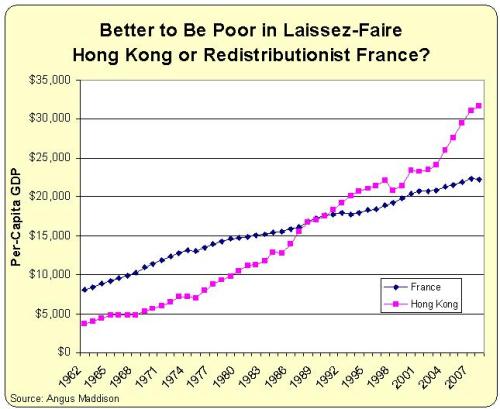Switzerland’s left-wing party has instigated a referendum for November 24 that asks voters to limit pay ranges so that a company wouldn’t be able to pay top employees more than 12 times what they’re paying their lowest-level employees.
I talked with Neil Cavuto about this proposal and made several (hopefully) cogent points.
Since Swiss voters already have demonstrated considerable wisdom (rejecting a class-warfare tax proposal in 2010 and imposing a cap on government spending in 2001), I predicted they will reject the plan. And I pointed out that Switzerland’s comparatively successful system is a result of not letting government have too much power over the economy.
But I don’t want to focus today on the Swiss referendum. Instead, I want to expand on my final point, which deals with the misguided belief by some on the left that the economy is a fixed pie and that you have to penalize the rich in order to help the poor.
I’ve covered this issue before, and I even tried to educate a PBS audience that economic growth is key.
But maybe this chart is the most persuasive bit of evidence. It shows per-capita GDP in France and Hong Kong over the past 50 or so years. France is a nation that prides itself of redistribution to “help” the poor while Hong Kong is famous for having the most economic freedom of any jurisdiction.
Now look at this data and ask yourself whether you’d rather be a poor person in France or Hong Kong?
Since Hong Kong is richer and is growing faster, the obvious answer is that poor people in France almost surely face a bleaker outlook.
Recommended
In other words, the welfare state can give you the basic necessities and allow you to survive (at least until the house of cards collapses), but it comes at a very high cost of lower growth and diminished opportunity.
The moral of the story is that prosperity is best achieved by a policy of free markets and small government.
P.S. If you want more evidence on the superiority of markets over statism, check out the comparison of South Korea and North Korea and the difference between Chile, Argentina, and Venezuela. Heck, even the data comparing America and Europe show similar results.
P.P.S. As you might expect, Margaret Thatcher addressed this issue in a brilliant fashion.
P.P.P.S. There’s a lot to like about Sweden, but click here if you want to see an impossibly absurd example from that nation of the equality-über-alles mentality.
P.P.P.P.S. There is some very interesting academic research that suggestshumans are hard-wired by evolution to be statists. Let’s hope that’s not true.


























Join the conversation as a VIP Member